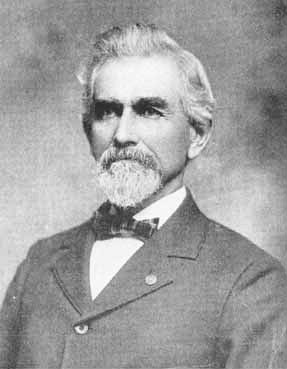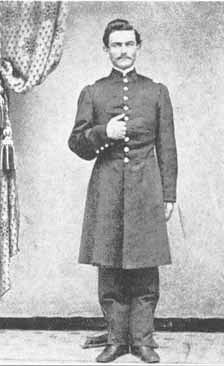Emory Wyman (1834-1929), a resident of Shelton in Buffalo County, was elected to the Nebraska House of Representatives as a Fusion candidate in 1898. Once seated, he wasted no time in introducing a bill on compulsory voting in Nebraska that was designed to compel every legal voter to vote at general elections.
Wyman, a native of New York state and later a resident of Michigan, Wisconsin, and Iowa, had moved in 1882 to Shelton. The Omaha Daily Bee noted on January 3, 1899, after his election to the Nebraska Legislature, that he had “led quite a varied business career and has been successively a school teacher, a contractor and builder, a soldier of the civil war, a traveling salesman, a superintendent of creameries and a buyer of butter, cheese and eggs. Since 1882, however, he has been engaged in farming.”
The Kearney Daily Hub on January 14 noted: “If the Hon. Emory Wyman of Buffalo county is to have his way a great load will be lifted off the backs of the political managers. Mr. Wyman recognizes, being something of a candidate himself at various times, that the one phantom that haunts the waking dreams and the dreaming wakefulness of candidates and the campaign committees is the fear that the voters will not come out to vote, and in this fact lies the great uncertainty of the result.
“Mr. Wyman is a member of the fusion aggregation and he is firmly convinced that the failure of the voters of Nebraska to realize upon their opportunities is the principal reason for his being classed as a member of the minority in the legislature. [There were fifty-two Republican members of the House and forty-eight Fusionists.] This merely by way of preface to relating that this morning Mr. Wyman presented to the house a bill to compel every legal voter to come out and vote at general elections.”
Wyman’s bill proposed that failure to vote at such elections would be a misdemeanor punishable by a fine of ten dollars and costs. In order to promote enforcement of the law, the individual counties were made liable for the costs, “so that witnesses and informers are certain to get their attendance and mileage no matter whether the accused pays up or goes to jail.” To encourage county attorneys to enforce the law, the bill made them liable to impeachment if violations were called to their attention and they failed to prosecute the offenders.
“The effect of this law,” said the Hub, “will be that henceforth instead of campaign committees hiring men at round sums per day to hustle in the votes, all that will be necessary to do will be to send a copy of the law to every voter and let him do the worrying.”
Wyman, whose bill never became law, served only a single term in the Nebraska Legislature. He moved from Shelton to Gibbon in 1906 and later to Wisconsin, where he died in 1929 at the age of ninety-four.

Emory Wyman. From Samuel Clay Bassett, Buffalo County, Nebraska, and Its People (Chicago, 1916)

Emory Wyman in 1864. From Samuel Clay Bassett, Buffalo County, Nebraska, and Its People (Chicago, 1916)



